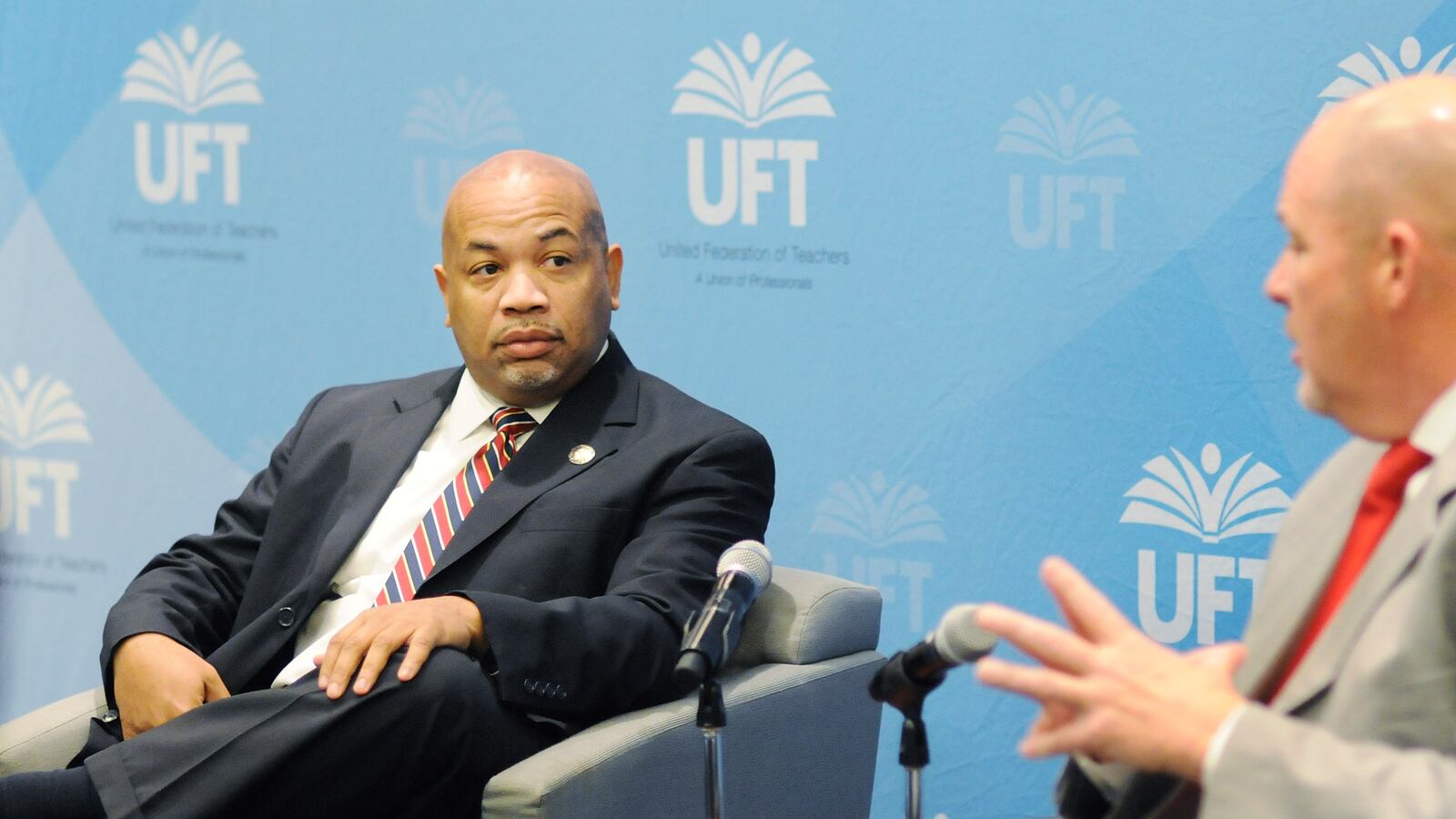As the clock ticks on this year’s legislative session, the fate of New York’s teacher evaluations hangs in the balance.
The teachers union has been waging a spirited battle to decouple state standardized test scores from teacher evaluations this year, which would mark the culmination of years of fighting against a system they say unfairly stigmatizes teachers. The legislation has already cleared the Democratic Assembly, but it remains at an impasse in the Republican-led Senate, which wants to tie the changes to benefits for charter schools.
As end-of-session haggling gets into full swing, it’s unclear whether the union will be able to secure a bill with “no strings attached.” Alternatively, lawmakers may agree to help charter schools in exchange for the bill’s passage, or they could be unable to settle their differences and shelve the measure until next year.
Here’s what you need to know about the upcoming battle:
Why are we talking about teacher evaluations again?
New Yorkers have spent years (and years) fighting about teacher evaluations.
In 2010, New York adopted a new teacher evaluation system that included state standardized test scores. Supporters of the policy argue it is the best way to objectively measure whether teachers are helping students learn. Opponents, including teachers unions, argue test scores lead to unreliable evaluations and often mean teachers are being rated based on subjects they don’t teach.
The debate took another turn in 2015 when Gov. Andrew Cuomo pushed for a new teacher evaluation system in which as much as half of an educator’s evaluation could be based on test scores. That law technically remains on the books today, but in response to fervent pushback from parents and the union, the state’s education policymaking body paused the use of grades 3-8 math and English test scores in teacher evaluations.
Lawmakers, policymakers, and the union jumped back into the charged conversation this year in part because the temporary pause on the use of certain test scores in the evaluations is set to expire in 2019.
What exactly does the union want this year?
The union-backed bill would forbid any requirement that districts use state standardized test scores in teacher evaluations. Instead, local districts would collectively bargain the assessments used to rate teachers.
Paradoxically, this major political shift will likely make little difference in the lives of New York City teachers. That’s because for the last several years the city has already been using a system of local tests to rate educators.
New York City created a slate of assessments called “Measures of Student Learning,” which test students on everything from English to art. Michael Mulgrew, the city teachers union president, said he is happy with the current system and has already vowed, “Nothing will change for New York City teachers.”
Critics, however, point out that very few teachers are given poor ratings under this system. In New York City last year, 97 percent of teachers were given one of the top two ratings of “highly effective” or “effective,” according to Mulgrew.
What are the chances that this bill passes?
There’s a good chance some teacher evaluation legislation will pass before the end of the session — but if history is any indication, it will cost something.
Senate Majority Leader John Flanagan has already staked out his position: He is willing to go even farther than the Assembly, scrapping the 2015 law all-together and leaving virtually every major decision about teacher ratings up to local collective bargaining. But in order to do that, he wants to dramatically expand the number of charter schools that can open in New York City and across the state. (The Senate introduced a second bill that the union also criticized for being friendly to charter schools.)
Assembly Speaker Carl Heastie has already called the bill “cyanide,” cuing the l back-and-forth that typically proceeds a larger deal each year in Albany. Last year, for instance, shortly after the mayor won a two-year extension of mayoral control, he made it easier for charter schools to expand and pay for space. The year before, mayoral control was attached to a provision that made it easier for charter schools to switch between authorizers.
Though Senate Republicans are typically able to secure at least a small victory, it’s unclear how much they can demand in an election year when their control of the chamber is in jeopardy. That is particularly a problem in Long Island, home to some of the most fierce resistance to standardized testing that will also be an electoral battleground this fall.
What might a compromise look like?
Anything is possible in Albany, but something charter school-related is a good bet.
Advocates have expressed concern that they will soon hit the cap on how many charter schools can open in New York City. Historically, they have also pushed to make it easier for charter schools to pay for school space and to allow charter schools to certify their own teachers.
Charter school advocates might also find it a particularly prime year to push for changes. With a major lobbying group out of the picture and the potential for Flanagan — who has been a charter school ally — to lose his majority next year, this could be the sector’s best shot to press for changes.
Also, Flanagan and others have expressed concerns that the legislation will create more testing, since it allows all local districts to create their own tests in addition to the state tests. The final deal could address this concern.

